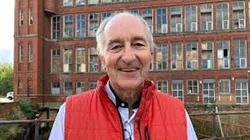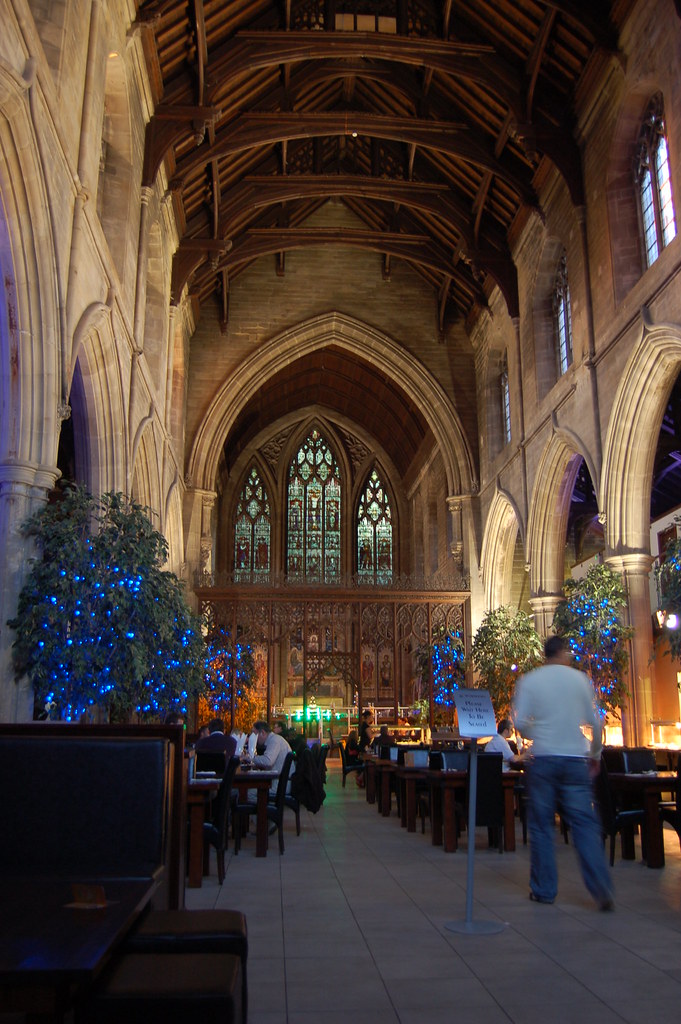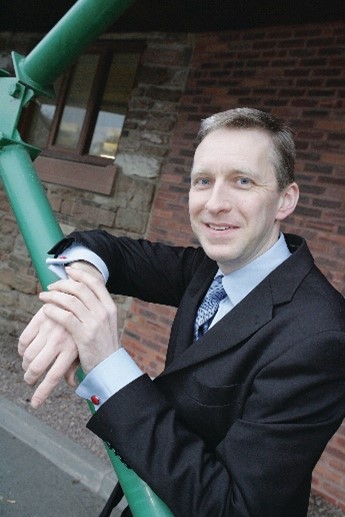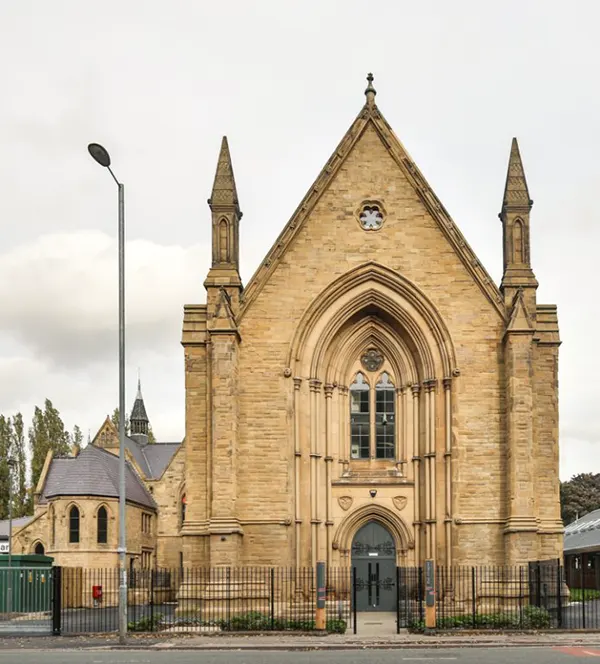Discover Our Journey
The History of Church Converts
Church Converts has always been about individuals with a passion for churches and architecture wanting to save them by giving them a new purpose.
Derek Latham and Mike Copestake
Church Converts was initially set up by architect Derek Latham in partnership with an Estate Agent in Ipswich to rescue a church in Cambridge. Derek designed a scheme for retail use and obtained planning and listed building consents for the conversion. Derek also developed plans for the community use of a church in Ipswich, which were ultimately implemented by another organisation.

Founder: Derek Latham
Derek Latham is one of the leading lights in conservation and adaptive reuse architecture in the UK. He founded his practice Derek Latham & Associates, later re-branded as Lathams, in 1980 as a conservation practice and developed head quarters offices in the former church of St Michael in Derby. This was one of the first conversions of a closed Church of England church into offices and contained many innovative and ground-breaking design features.
The next church Derek was interested in saving was St Werburgh’s Derby, which was being sold by NatWest bank (who had taken it in liquidation). Derek was introduced to the other potential purchaser, a Derby based lawyer called Michael Copestake. Derek and Mike joined forces and were able to secure the building.
Under the Church Converts moniker, Derek and Mike restored St Werburgh’s, converted the nave into a restaurant which was leased to a Chinese buffet called Wok Mania and ultimately sold the building. Note that many years later, St Werburgh’s reopened as a place of worship following its purchase by Holy Trinity Brompton, showing that commercial uses may not be the end of the line for places of worship if the intervention is light, as it usually will be with restaurant uses.
Following the restoration, letting and sale of St Werburgh’s, Church Converts obtained planning permission for the conversion of St Peters in Coventry into apartments. The site was then sold to a developer.
St Werburgh’s Church as Wok Mania in 2008.
Photo credit: Historyanorak Flickr
What Derek and Mike were proving was that adaptive reuse of churches closed for worship was possible, with a range of end uses (they had done community, retail, offices, leisure, and residential) but they did not have the funding to complete turnkey developments
The Introduction of Simon Linford
Simon Linford had become Chief Executive of Linford Group, a construction company that had a large historic building restoration business called Linford-Bridgman, steeped in history of working on projects as large as the restoration of York Minster after the south transept fire. Linford Group was working with Lathams on a residential scheme in Derbyshire and Simon came to know Derek. When the sale by the Church Commissioners of St John’s Hanley came across his desk he went to see Derek, who was also aware of the opportunity. St John’s Hanley was one of the Commissioners’ biggest problem cases, empty for 25 years, greatly deteriorating and with an estimated repair liability of £1.3m.
Simon teaming up with Derek and Mike gave an added dimension to Church Converts’ capabilities – access to building expertise. Simon joined the partnership and Church Converts bought St John’s Hanley for £5,000 on the basis that Linford-Bridgeman would do the works, Lathams would be the architect, and Mike’s law firm Freeths would handle all the legal aspects (which are not trivial with the purchase and funding of churches).
Hanley was repaid with funding from Handelsbanken against the prospect of a sale to the adjacent shopping centre and the repair work was done for under £600,000. The scheme was not a commercial success though, and after trading as an antiques centre it was resold to a community group. A valuable lesson however was realising that estimated costs of restoring churches prepared by conservation QS’s were wildly higher than the costs of work actually needed just to bring a building back into use.
Church Converts most successful project was the former Welsh Baptist Chapel in Manchester, purchased from the local Council for notional consideration. In a highly complex planning and conservation scenario, Church Converts got planning to convert the derelict Grad II* listed chapel into student accommodation, and sold the site to Empiric Student Property.
Simon’s development company Czero Developments then took the delivery of the scheme forward and delivered the project on a forward funded basis to Empiric, creating what became their flagship scheme.
Although Derek and Mike have now retired, Church Converts continues to pursue its goal of saving church buildings through conversion or adaptive reuse.



